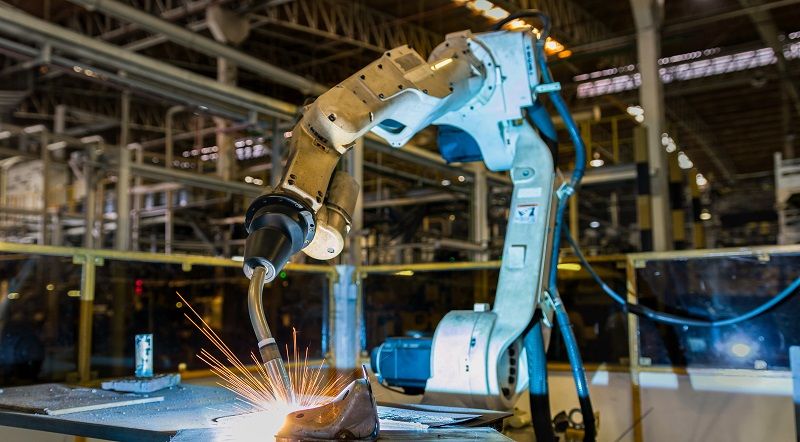The construction sector is on the cusp of a technological transformation which will drive sustainability considerations to the forefront of decision-making, according to experts who will be debating key challenges associated with construction megatrends at an event this month.
Robots are predicted to replace humans as the sector becomes increasingly automised over the next 30 years, supporting the drive for carbon neutral development while radically improving health and safety on building sites.
Dr Will Cavendish, Global Leader Digital Services, Arup; Aref Boualwan, Senior Manager Digital Transformation & Strategy, CCC; Peter Jones, Technical & Operational Efficiency Director, Skanska; and Sherief Elabd, Director of Industry Strategy, Oracle Construction and Engineering, will be among speakers at the Construction Technology Forum 2019 (24-25 September, Address, Dubai Marina).
According to Arup’s Cavendish, firms wishing to stay at the forefront of the construction sector must make both technology and sustainability considerations a priority or they risk being left behind.
He says: “With the world becoming more polluted and fossil fuel use needing to fall, the transformation to carbon neutral infrastructure, buildings, transportation and grid will become paramount to being able to live and operate in the Middle East.”
Skanska’s Jones shares this vision for the future of the construction sector, adding: “Sites will deliver net-zero carbon through the use of electric vehicles, and plant and machinery powered from renewable resources.”
By 2050, Jones predicts construction sites will look more like assembly plants dominated by robots. He says: “There will be very little build completed on site, except for foundations and earthworks. It will be more like an outside factory, with various sub-assembled components being delivered to site to be assembled by robots or automated vehicles. Ninety percent will be manufactured off site and only brought to site for final assembly.”
CCC’s Boualwan also foresees connected systems and robots permeating future construction sites, creating a major shift in the required workforce skills. He believes a big advantage of this will be improved health and safety: “One of the main reasons why robots are increasingly deployed is their ability to replace workers in dangerous and hazardous construction zones, thus helping to improve safety measures.”
Boualwan envisages significant opportunities in the construction sector for start-ups to help drive digitalisation. He believes this could help eradicate the days of construction delays and spiralling budgets: “The sector has lagged when it comes to technological advancements.
Partnering with construction technology start-ups could help put an end to the expansion of construction schedules, and the continuous increase in labour and material costs. I believe the GCC construction scene is on the cusp of a new, ever-evolving era of engaging construction technology start-ups.”
Middle East construction firms need to respond to advances in the sector in order to maintain their competitive advantage, and Arup’s Cavendish recommends they do this by prioritising considerations such as: sourcing sustainable materials; integrating with the United Nations Sustainable Development Goals; considering the “circular economy” to understand what happens at the end of a building’s lifecycle; and integrating smart technologies into buildings from design and through the lifecycle to deliver carbon neutral operations.
Oracle’s Elabd also endorses the need for prompt action in order to keep up with the rapid pace of change associated with tools such as artificial intelligence (AI), robotics, the Internet of Things (IoT), Building Information Modelling (BIM) and drones.
He adds: “Companies need to be taking technology trends seriously now by investing their resources in quality research and development, and most importantly by focusing on process re-engineering and integration within their business culture and markets. Without clear process which supports collaboration and adoption, there is no pathway to successful digital transformation.”
“AI is the big game changer in construction as everything is now revolved around improving productivity, especially labour, in a market that is more competitive than ever.”
“Sustainability will become inherited and integral to any new construction, with constant improvements in performance driven by AI and automation, as well as the use of sustainable materials which promote less energy and water consumption.”
The Construction Technology Forum 2019 will take place on 24-25 September, 2019 at the Address Hotel, Dubai Marina.
With governments in the region laying the foundations for data-driven economies, the event is designed to provide insights into how adopting technology can reduce operational costs, boost productivity and enhance overall quality across all elements of the industry supply-chain.
The Construction Technology Forum is organised by Ventures Connect, a partnership between b2b Connect and Ventures Middle East; two businesses committed to empowering companies across the Middle East and Africa Region while enabling critical connections with key stakeholders and decision makers across various industries.
B2B Connect designs, manages and produces content and events for a range of industry-leading clients in the Middle East, North Africa and Turkey.
Read Also

